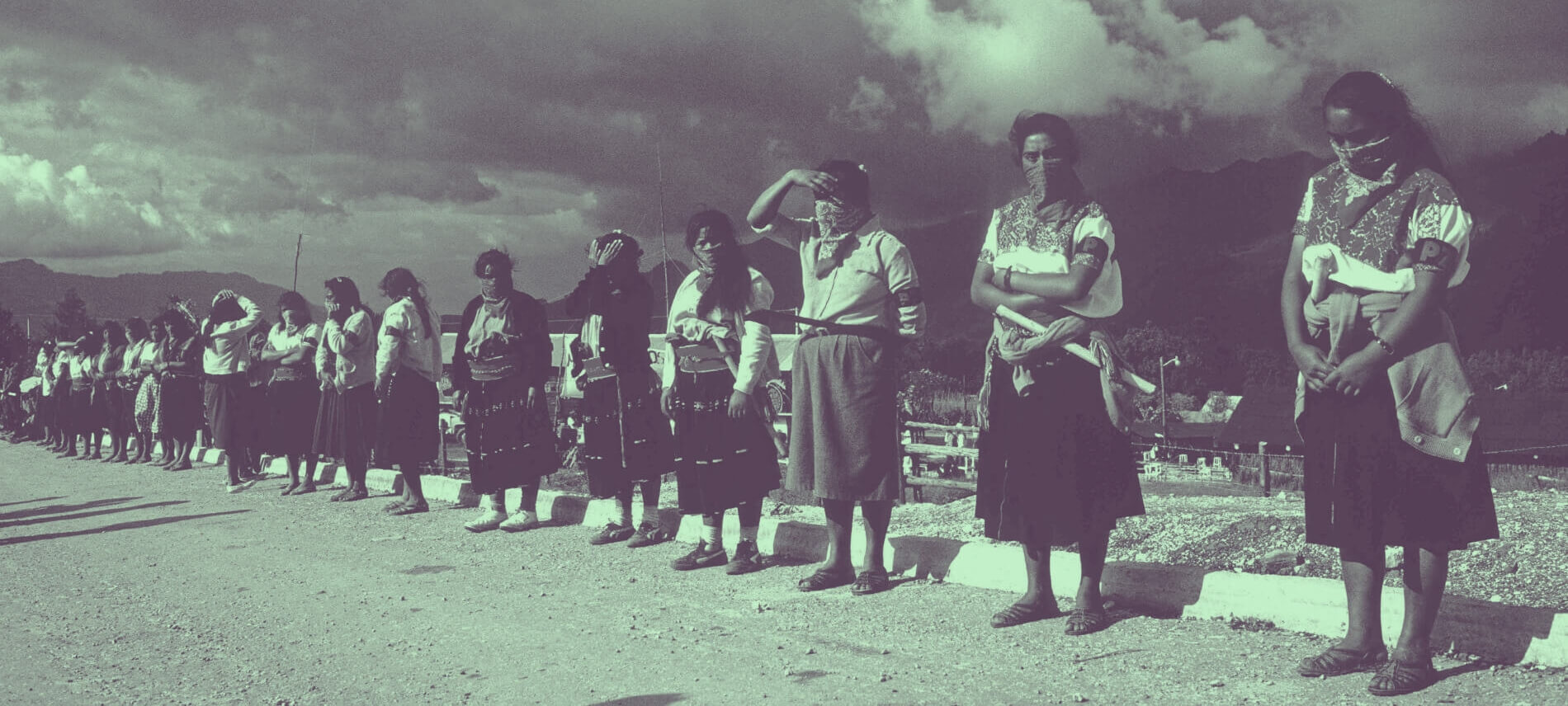
The Indigenous Rights Report is a weekly crash course on everything in the indigenous world.
Make this podcast happen! Support us on Patreon!

In this week’s Indigenous Rights Report:
- Odisha Government files charges against Indigenous Peoples for resisting Vedanta mines
- Canadian mining company takes responsibility for violence at a silver mine in Guatemala
- Police attack a Kinikinawa community in Brazil
- A historic step towards securing community land rights in Kenya
- Gov. David Ige calls off Mauna Kea emergency proclamation
- EPA clears path for proposed copper and gold mine near Alaska’s Bristol Bay
- Munduruku indigenous peoples expel illegal loggers in Pará state
- New Zealand’s indigenous Maori protest over ‘stolen children’
- US $4.9 million awarded to preserve Native languages
- Indigenous communities in Mexico fight for their lives and their lands
- ACLU creates new position focusing on indigenous issues
- Biodiversity highest on Indigenous-managed lands
- Wyoming Republican claims that protecting grizzly bear “violates the “Western way of life”
- Villagers in Preah Vihear province accuse a rubber company of clearing community’s land
- Murder of Brazilian indigenous leader a ‘worrying symptom’ of land invasion
- New Zealand launches $7.5m ocean research project
- In 21st century, threats ‘from all sides’ for Latin America’s original languages
- ‘Severe need’ for Indigenous representation in fight for Lake Winnipeg water quality
India’s Odisha Government has filed charges against 45 indigenous villagers and other unnamed members for allegedly disrupting “law and order”. The locals across 22 villages in Odisha’s Kodingamali hill (in India) are vehemently opposing bauxite mining by corporate giant Vedanta. The villages say Vedanta’s mines have ruined their lives by polluted their fields and rivers, and have failed to generate any employment after their land was taken away on the promise of infrastructural development and job generation. They require written assurances by the state and the district administration over the stopping of all mining activities.
Vedanta group is running the project on a lease given by the Odisha Mining Corporation to a private firm Mytri infra. The project started in February 2018. The government of Odisha had introduced a new bauxite linkage policy. The Odisha Mining Corporation signed a Memorandum of Understanding with Vedanta to supply 70% of the bauxite obtained from Kodingamali to Vedanta’s refinery situated about 150 km away at Lanjigarh in Kalahandi district.
Canadian mining company Tahoe Resources took responsibility for violence against peaceful protestors at the Escobal silver mine in Guatemala. A lawsuit accused the mining company, recently acquired by Pan American Silver, of negligence and battery after the company’s security forces fired on peaceful protesters outside the mine in 2013. The Escobal mine has been suspended by a July 2017 court order mandating the Ministry of Energy and Mines to consult with Xinka people living around the mine. Since then, members of the resistance have suffered a sharp increase in threats, including acts of provocation, criminalization, and defamation by armed groups and individuals aligned with the project.
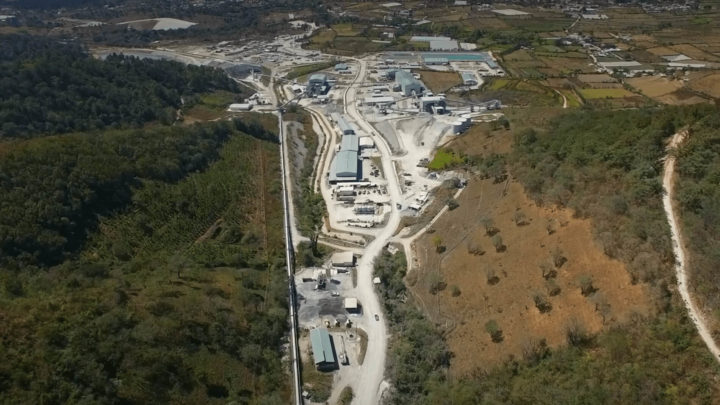
The Escobal mine
The case against Tahoe Resources set an important precedent in Canada, establishing that Canadian courts are the preferred forum when Canadian companies commit human rights violations, except in cases where the foreign tribunal has clearly proven capable of providing justice more efficiently.
Heavily armed police have attacked Kinikinawa Indigenous peoples on their land in central-western Brazil, terrorizing the community and injuring several people. It is believed that the police had no official order from a Judge to “remove” the Kinikinawa from the reoccupied territory, and were instead acting on orders from a local mayor and rancher. The neighboring Guarani released a statement expressing their anger that “the ranchers and police are acting illegally and attacking indigenous people.”
On August 1, the Kinikinawa reoccupied a patch of their ancestral land, which was stolen from them years ago to make way for ranchers. President Bolsonaro has virtually declared war against Brazil’s indigenous population. The number of land invasions and attacks against them has skyrocketed since he took office on January 1, 2019.
Indigenous, pastoralist communities in Kenya made history by demanding official registration for their communal lands. This was unprecedented and the culmination of years of effort to empower communities to understand and claim their land rights. In 2016, the Government of Kenya enacted the Community Land Act, a progressive new law that enables local communities to legally register and own their communal lands. But since then, not a single community in Kenya has been able to apply to have their land rights legally recognized.
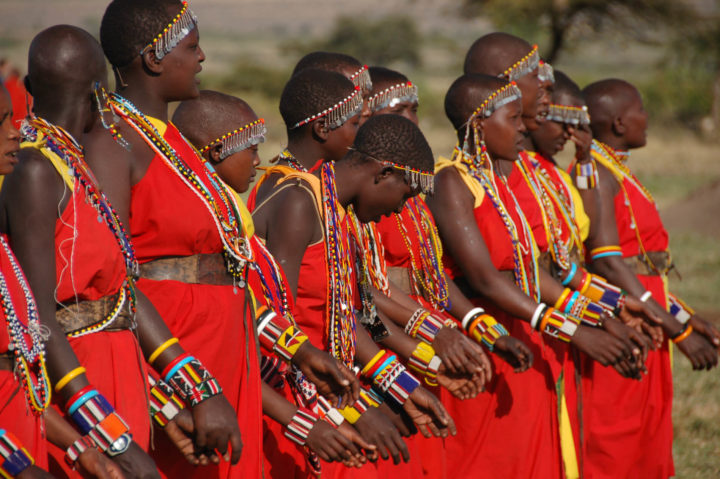
Photo: Dylan Walters/flickr (CC)
Indigenous and other marginalized groups have faced stiff challenges in exercising their land rights. An estimated 3.5 million people have been unable to register their communal lands, covering roughly 150,000 square miles, or 67% of Kenya’s landmass.
Gov. David Ige of Hawaii called off an emergency proclamation he issued on July 14 to get construction started on the Thirty Meter Telescope (TMT) on Mauna Kea, saying the arrival of storms on the Big Island will postpone construction anyway. Ige also announced that the state Department of Land and Natural Resources (DLNR) approved a two-year extension and that TMT had until September 26 to begin construction to comply with the conditional use permit from DLNR. Kaho’okahi Kanuha, a spokesman for the demonstrators on Mauna Kea, said both decisions by the governor are small victories for the kia’I (or ‘guard’, people who oppose the TMT), but they are prepared for a long struggle.
TMT construction has already been delayed four years by a combination of protests and lawsuits.
The U.S. Environmental Protection Agency officials announced they would not block the proposed copper and gold Pebble Mine near Alaska’s Bristol Bay, appearing to overrule the agency’s Seattle branch which recently submitted a highly critical review of the mining proposal. The decision undoes Obama-era environmental restrictions, freeing the U.S. Army Corps of Engineers to decide whether to permit the controversial mine. The agency said it was withdrawing its option under the Clean Water Act to veto the project. The Clean Water Act gives regional EPA administrators authority to step in when they determine proposed projects would likely damage fisheries or wildlife habitat.
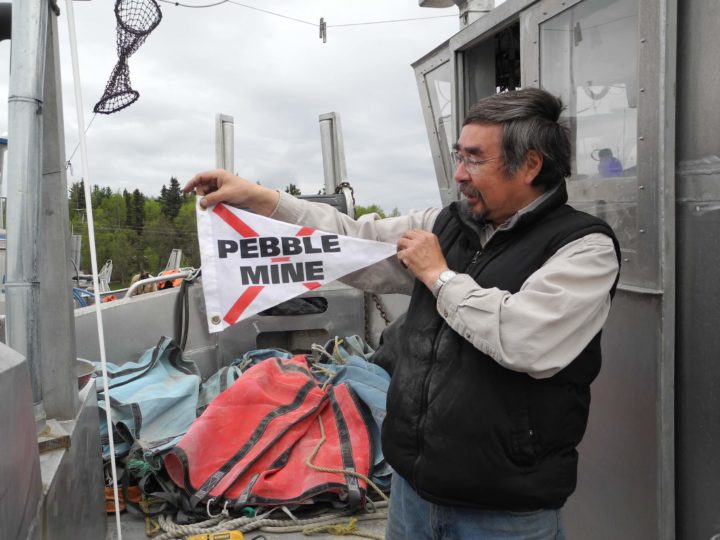
First Chief of the Curyung Tribal Council, Tom Tilden, Photo credit: Giovanna Marcantonio
The agency’s decision throws a lifeline to Canada’s Northern Dynasty Minerals Ltd., which wants to process 180,000 tons of ore a day for 20 years at the remote site, 200 miles southwest of Anchorage. Commercial fishermen say that no amount of production or local employment would justify risking contamination of Bristol Bay, where the salmon fishery supports 14,000 jobs and generates revenue of $1.5 billion a year.
Munkunduru warriors have carried out a 100-kilometer walking expedition to expel loggers and palm growers from sawré Muybu Indigenous Land (TI) in southwest Pará, Brazil. The loggers were given three days to leave the territory.
With 178,000 hectares of forest, TI Sawré Muybu has its identification and delimitation studies published in the Federal Official Gazette in 2016. President Jair Bolsanaro said he will not ratify more Indigenous lands and promised to open them to mining and other economic activities of major environmental impact, a statement that spurred an increase in invasions of Indigenous lands by land grabbers and prospects since the beginning of this year, even in already approved areas. Munkunduru is one of the most populous ethnic group in the country, with about 14,000 people.
Thousands of Maori protested across New Zealand calling for an end to the practice of taking at-risk children (mostly Maori) away from their families. Many Maori people criticized this practice as racially skewed and a legacy of colonization. Protesters call the children New Zealand’s “stolen generation” – a reference to Indigenous Australians forcibly taken from their families as children under an official policy of assimilation.
As tensions grow between the Indigenous community and the government, the protest coincided with another stand-off with thousands of Maori protesters in Auckland over plans to build a housing project on sacred land. The twin disputes present a challenge for Ardern’s Labour-led coalition, which needs to keep its Maori voters ahead of an election next year.
The Administration for Native Americans (ANA) at the U.S. Department of Health and Human Services’ Administration for Children and Families announced awards for 18 grant projects, totaling nearly $4.9 million, to help preserve Native languages in various communities throughout the United States.
Funding through the Native Language Preservation and Maintenance and the Esther Martinez Immersion programs will assist tribes and Native organizations with planning, developing, and implementing projects to revitalize languages, preserve cultures and ceremonies, and strengthen inter-generational activities between elders and young people and children.
A confederation of Nahua villages in Mexico vowed to defend their ancestral homeland from a predatory cartel with alleged ties to extractive industries. Local residents and international experts accuse the powerful drug cartel Los Ardillos (the Ardillos) of carrying out a months-long reign of terror aimed at subjugating or “exterminating” a string of Nahua villages. The Nahuas’ ancestral homeland, known as La Montañosa region, is in northeastern highlands of Guerrero, and is rich in minerals and old-growth forests – resources that organized crime groups are willing to kill for.
Guerrero is home to 25 active mineral extraction projects and some 700 additional mining concessions, and deforestation is already at record levels. In 2018, more than 5,000 people were victims of forced displacement by armed groups, including almost 600 children. Local human rights groups claim crime groups in Guerrero act as “armed wings” for the mining and logging industries they extract extortion fees from; the ‘narcos’ (those involved in drug trafficking) often further extraction companies’ interests by crushing resistance or driving away residents who occupy valuable lands.
The American Civil Liberties Union (ACLU) is creating a new position in South Dakota to focus on indigenous issues. The idea took on new urgency after South Dakota this year passed laws aimed at potential Keystone XL protests. The laws require pipeline companies to help pay extraordinary expenses (such as the cost of policing during protests), and aim to pursue money from demonstrators who engage in so-called “riot boosting” (which is defined in part as encouraging violence during a riot). The measures sparked opposition from Native Americans tribes who said they weren’t consulted. The ACLU is challenging the laws in federal court, arguing they are unconstitutional.
The new position will allow the ACLU to focus on topics including missing and murdered indigenous women, the Keystone XL pipeline, and other areas, and to work on those issues in partnership with Indigenous peoples in South Dakota.
A new study led by The University of British Colombia suggests that Indigenous-managed lands may play a critical role in helping species survive. Using land and species data collected from Australia, Brazil and Canada, the study found that the total numbers of birds, mammals, amphibians and reptiles were consistently the highest on lands managed or co-managed by Indigenous communities. The study concluded that “collaborating with Indigenous governments, communities and organizations can help to conserve biodiversity as well as support Indigenous rights to land, sustainable resource use and well-being.”
According to a recent United Nations report, more than one million plant and animal species worldwide are facing extinction, making the new UBC study an important contribution to future conservation strategies.
Native tribes and their supporters had to defend their push for the continued protection of the Yellowstone grizzly bear population after Rep. Liz Cheney claimed that so-called “radical” groups were “intent on destroying our Western way of life”. Last week, the bear was officially returned to the endangered species list created by the Endangered Species Act (ESA), nearly a year after a federal judge found that the Trump administration exceeded its authority when it attempted to remove the species.
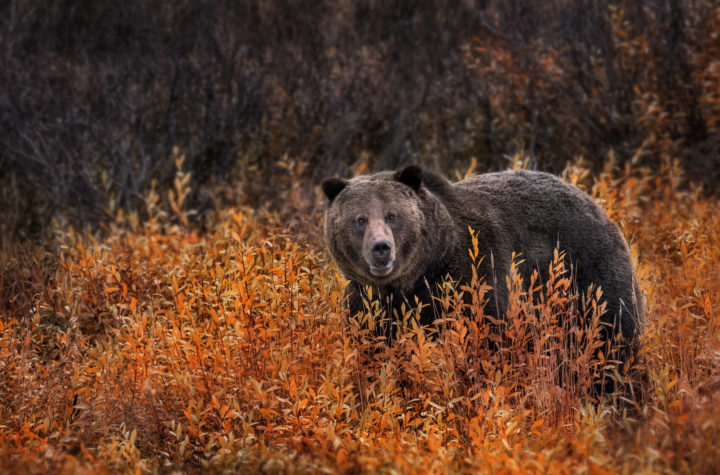
Rep. Liz Cheney (R-Wy.) came under fire this week for claiming that the inclusion of the grizzly bear of Yellowstone National Park on the endangered species list is an attack on “our Western way of life.” Native tribes lobbied to ensure the bear’s inclusion. (Photo: Ania Tuzel Photography/Flickr/cc)
The Rocky Mountain Tribal Leaders Council (RMTLC) took issue with Cheney’s suggestion. “So, in striving to protect our culture, our religious and spiritual freedoms, our sovereignty, and our treaty rights—all of which are encapsulated in the grizzly issue—we are ‘destroying’ Cheney’s idea of the ‘Western way of life’?” Tom Rodgers, senior adviser to the RMTLC, told Native News Online. “I would remind the congresswoman that at the time of the Lewis and Clark Expedition an estimated 100,000 grizzly bears roamed from the Missouri River to the Pacific Coast,” he added. “That was all Indian Country. Now there are fewer than 2,000 grizzly bears and our people live in Third World conditions on meager reservations in the poorest counties in the U.S. Does she really want to talk about ‘destroying’ a ‘way of life’?” asked Rodgers.
Villagers from Preah Vihear province’s Rovieng district in Cambodia have accused Try Pheap Engineering & Construction Co Ltd of clearing 10ha of community land in Romny commune’s O’por village. The Boeung Tonle Mrech community land covered 2,351ha, but 10ha was reserved land where Try Pheap and local authorities had promised to build a school, a pagoda and a health centre.
The Boeung Tonle Mrech community land is rich in natural resources and the forest supports the livelihoods of the Kuoy ethnic community. The area was acknowledged as community land by the Ministry of Environment in 2010, but it had been encroached upon by locals and people from other communities, and especially by the Try Pheap group that has been operating rubber plantations and growing cashew nuts in the area since 2011.
Following the murder of indigenous leader Emrya Wajãpi in Brazil, the UN High Commissioner for Human Rights, Michelle Bachelet, has called on the country’s authorities to “react quickly and decisively” to protect the rights of Indigenous peoples on their lands. Emrya Wajãpi, leader of the Indigenous Wajãpi peoples, was killed on July 23 in Amapá, a region in the far north of Brazil, bordering French Guyana.
According to the UN human rights chief, the proposed policy of the Brazilian Government to open the Amazon up to mining could lead to “incidents of violence, intimidation and killings.”
New Zealand has launched an NZD 11.5 million ($7.5m) new project that it hopes will revolutionize its ability to comprehensively measure, monitor and predict the state of the oceans. The five-year Moana Project will be combining the expertise and research of New Zealand’s oceanographic research institutions with Indigenous knowledge.
The Moana Project’s program director, Moninya Roughan, said New Zealand sits in a hotspot of ocean warming.
In the 21st century, there are cultural, environmental, territorial and linguistic threats for Latin America’s original languages. A number of Indigenous activists blame governments, and say the policy shifts are too little, too late. In the past five centuries, more than 1,000 languages disappeared in Brazil, while the government only recognized the right of Indigenous people to use their native languages in 1988.
UNESCO named 2019 the International Year of Indigenous Languages, committing to working with governments and native peoples to rescue endangered and threatened tongues among the 600-some surviving indigenous tongues in the region.
There is a ‘severe need’ for Indigenous representation in fight for Lake Winnipeg water quality. The Lake Winnipeg Indigenous Collective is trying to change that by consulting and working with area First Nations communities. The collective has been working on projects such as a fish habitat survey, which set out to collect perspectives and traditional knowledge from First Nations communities around Lake Winnipeg, said Rebecca Sinclair, a program co-coordinator for the Collective and a band member with Little Saskatchewan First Nation.

Indigenous Peoples are putting their bodies on the line and it's our responsibility to make sure you know why. That takes time, expertise and resources - and we're up against a constant tide of misinformation and distorted coverage. By supporting IC you're empowering the kind of journalism we need, at the moment we need it most.